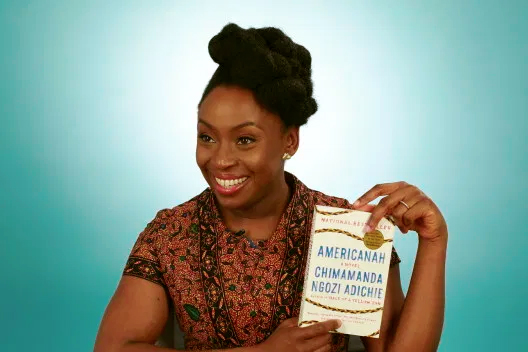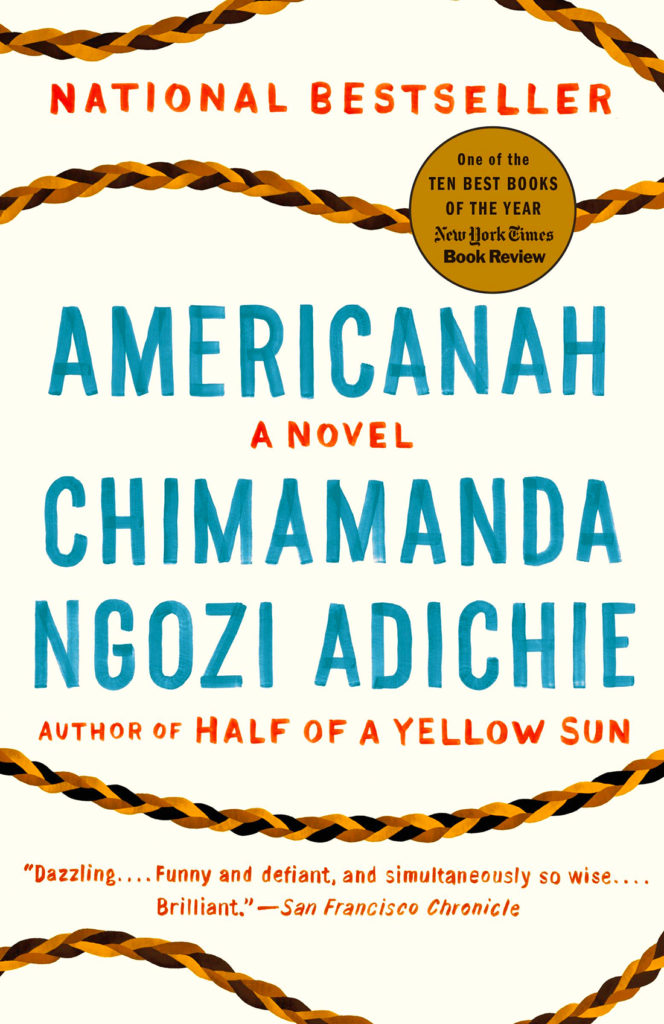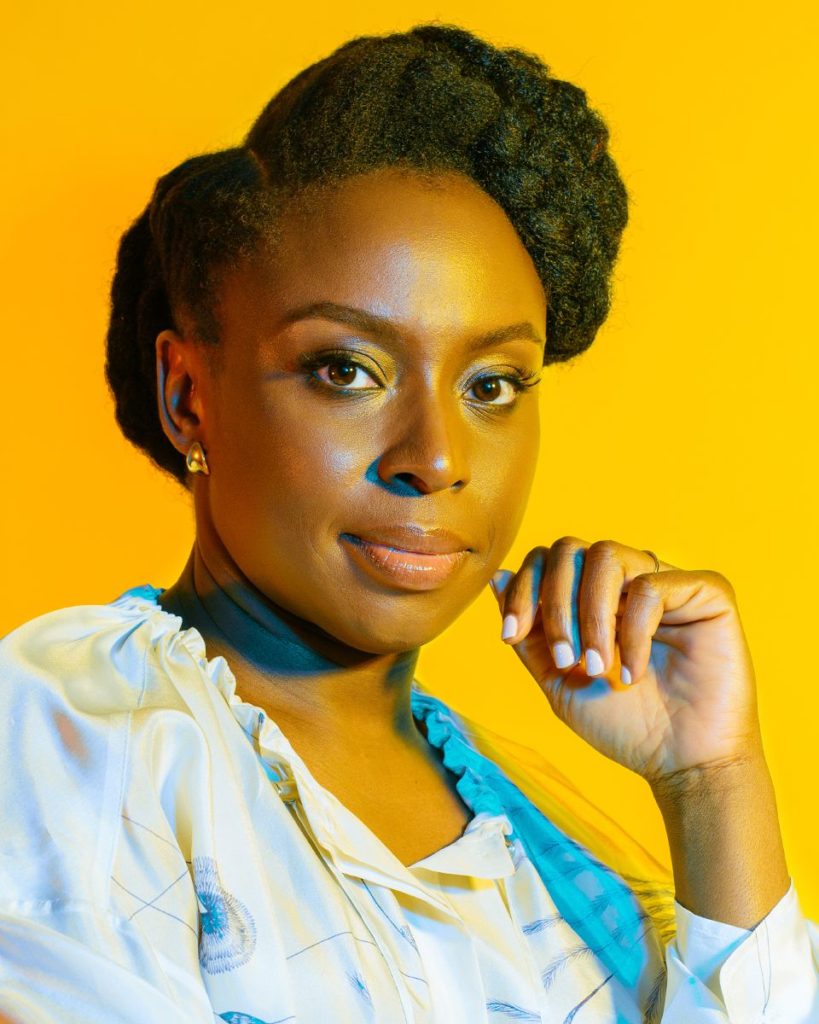After finishing Chimamanda Ngozi Adichie’s excellent novel, Americanah, I wondered why I hadn’t read it sooner...
I’m so glad I took the time to envelope myself in this story, one that is rich, poignant, and filled with Adichie’s astute critiques of America, England, and Nigeria.
We first meet Ifemelu, the shrewd and outspoken main protagonist of the book, after she has made the decision to leave America and return to Nigeria, the place she was born and raised.
The move seems somewhat puzzling because Ifemelu has built a successful life for herself in America; she just finished a Princeton fellowship, has a popular blog about race, and has a healthy relationship with her boyfriend, Blaine. Nevertheless, she is discontent and longing for Nigeria and her first love, Obinze.
From there, Adichie alters between time, perspectives, and places to tell Ifemelu’s and Obinze’s journeys of self-discovery while they confront the tribulations of racism, immigration, and much more.
One of the reasons I enjoy reading, as others do, is that it allows me to intimately delve into stories and experiences that I would otherwise never know about.
In Americanah, I found myself captivated in a world with characters whose circumstances are drastically different from my own.
Ifemelu is what Adichie calls a “Non-American Black,” a young Nigerian woman who enters America and is forced to contend with the unique isolation and disorientation of being in a dramatically new place, struggling, at first, to make ends meet while also sinking into depression.
Even as she develops a sense of American culture, Ifemelu constantly struggles with feeling like an outsider.
I gained a deeper insight into how challenging that position can be — and how to operate and develop a sense of self in a society that views you as “other.”
The brilliance of Americanah is further emanated from the authenticity of the characters; there is a deep familiarity in their curiosity, disillusionment, heartbreak, and desire for belonging. How Ifemelu, Obinze, and others in their lives navigate those feelings are complicated by mistakes — lying, acting out of fear or desperation — but those, of course, only make them more human.
Ultimately, this achievement beautifully demonstrates the genuine connection that is possible between races, genders, and classes, which, Adichie believes, can provide a valuable — and necessary — opportunity for understanding and healing.
– Sarah W, NEW BOOK JOY Guest Contributor

NEW BOOK JOY is an affiliate of Bookshop.org and will earn a commission if you click through and make a purchase. Every order you place through NBJ supports our site and their pool of independent bookstores!
ABOUT THE GUEST CONTRIBUTOR

Sarah White
Sarah White recently graduated from Roosevelt University with a bachelor’s degree in political science.
She is still on that trying journey figuring out what she wants to do with the rest of her life.
In the meantime, she deeply enjoys writing, reading, and spending time with her friends and family.
Conversation
What’s your experience with this book?
Let’s get a conversation started in the comments below!



